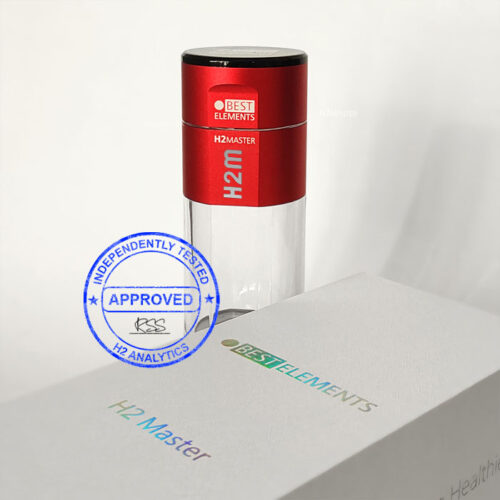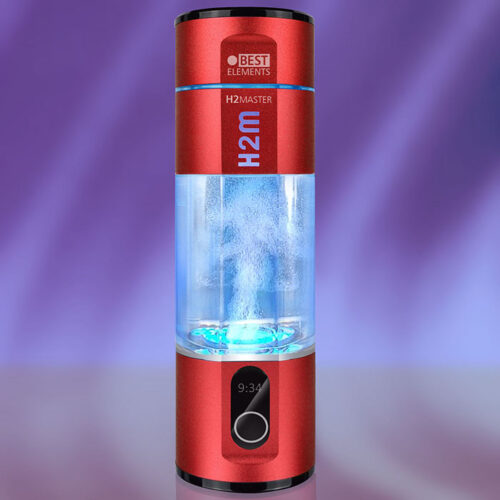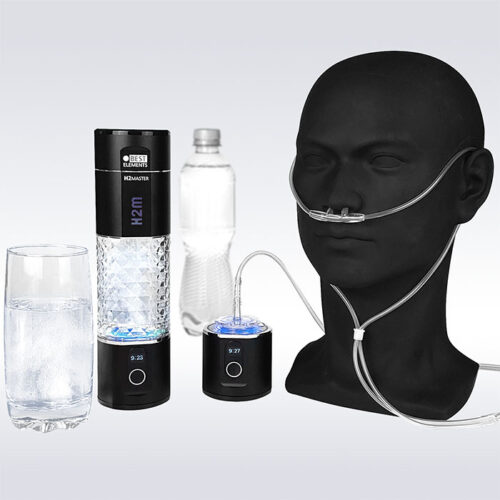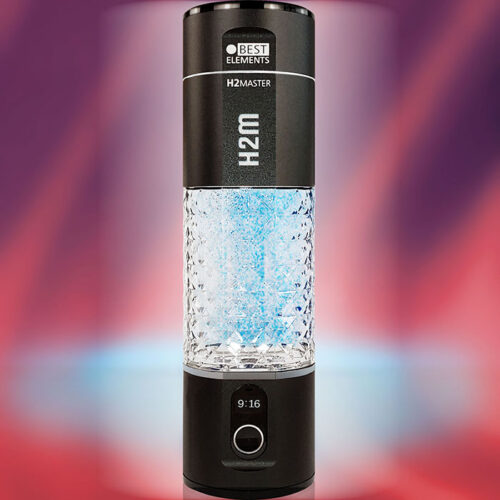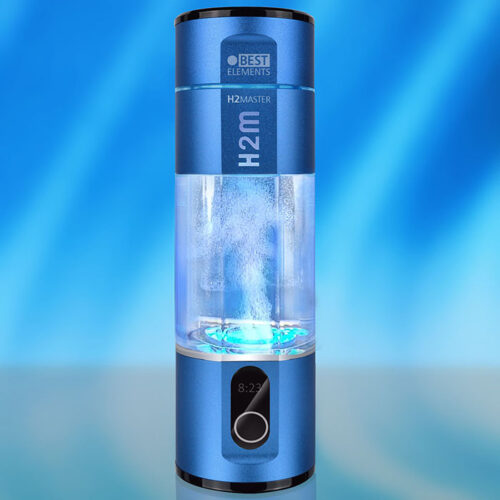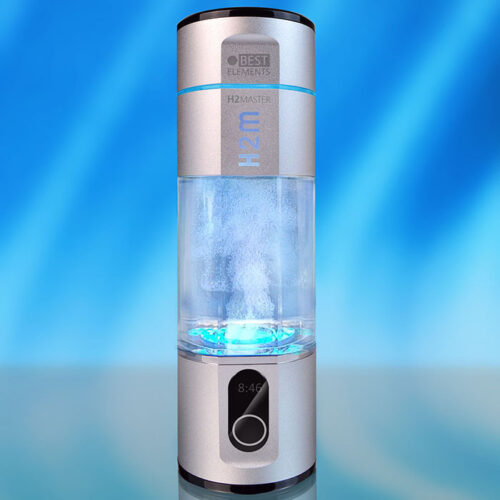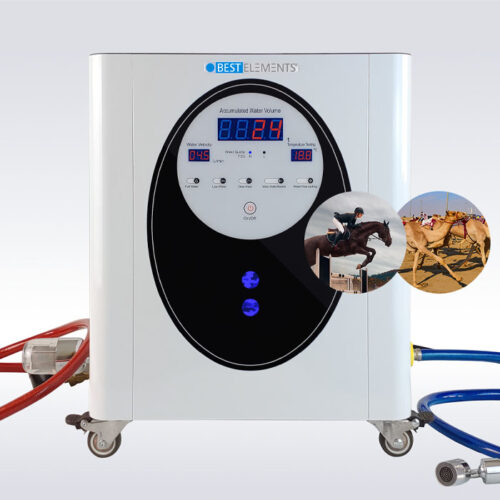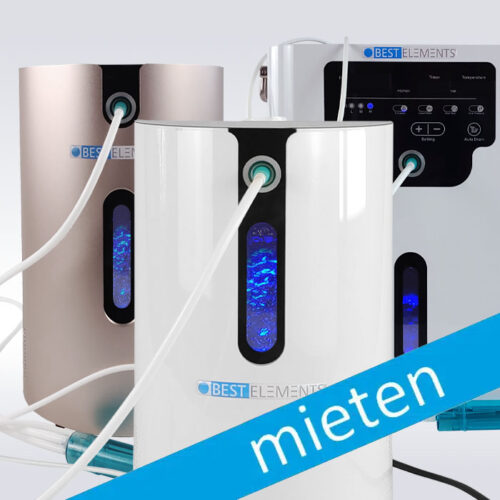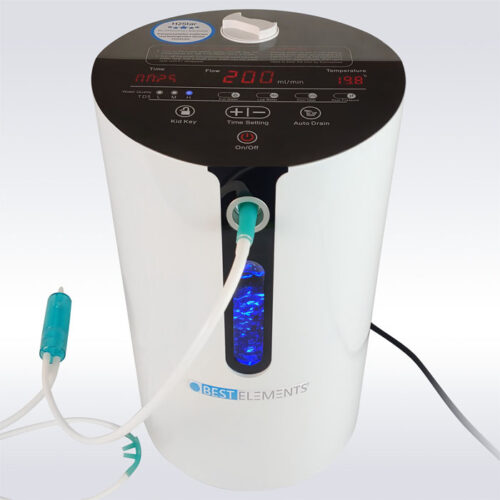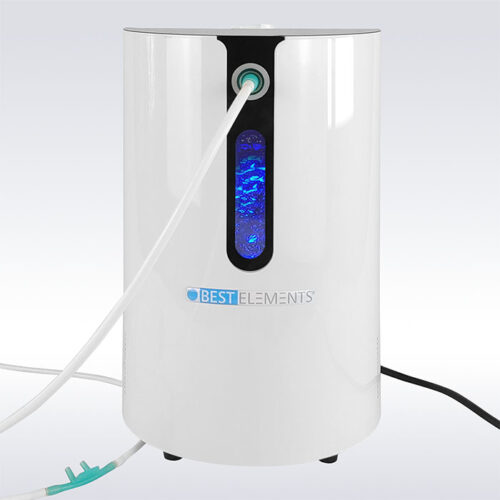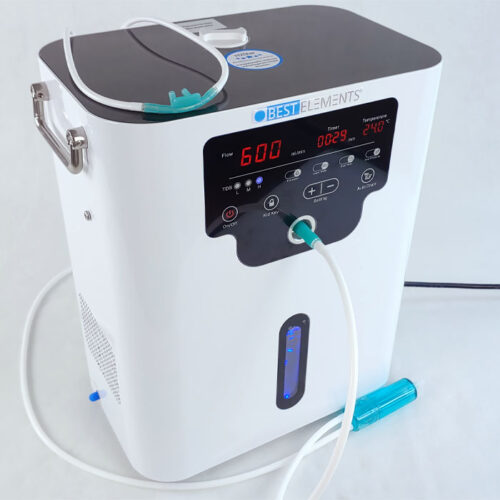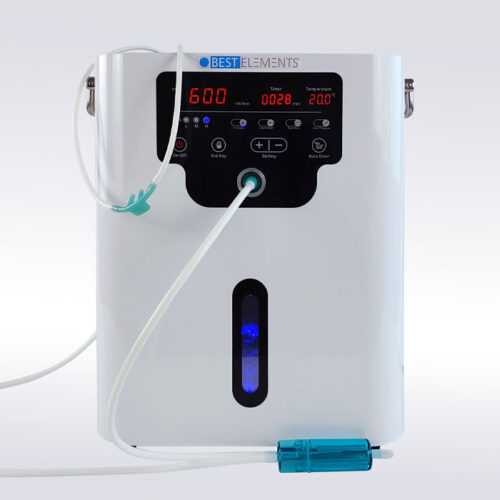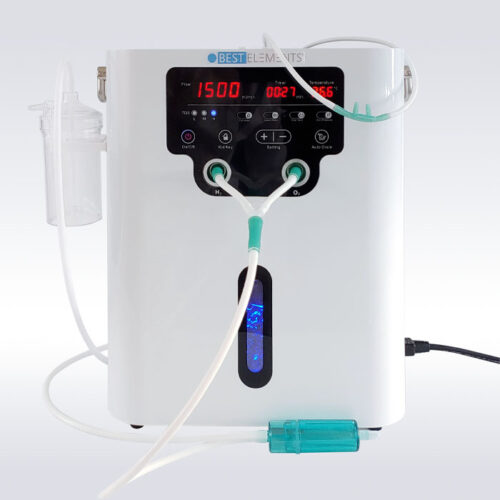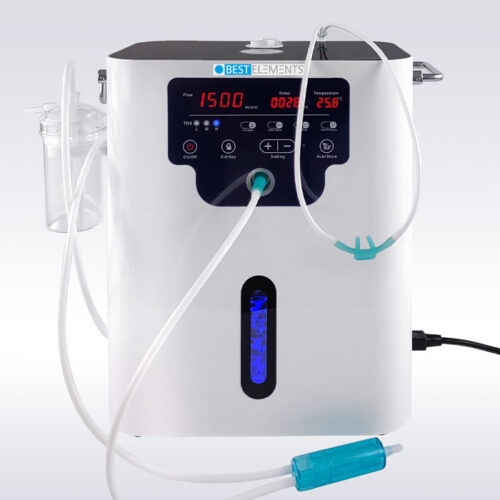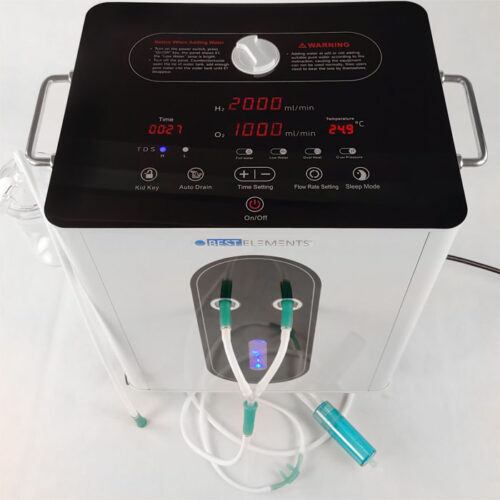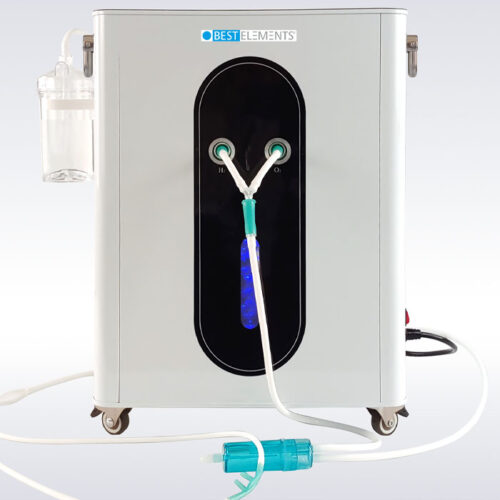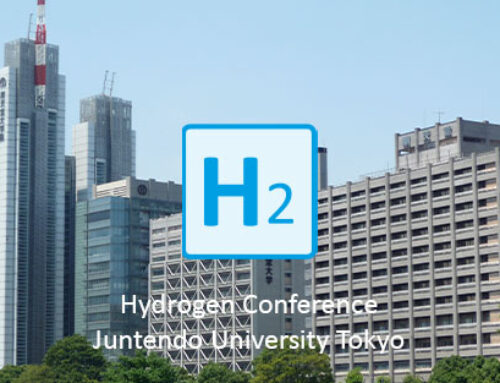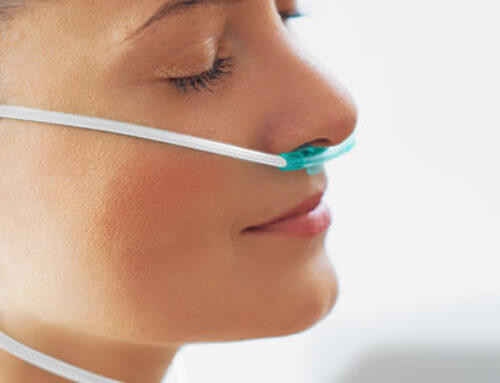Studies and medical benefits of hydrogen inhalation and hydrogen-rich drinking water
Hydrogen therapy for respiratory and lung diseases, cancer therapy, neurological diseases, mental health, metabolic diseases (including diabetes mellitus (DM), metabolic syndrome (MS), fatty liver disease (FL), arteriosclerosis (AS), and obesity), cardiovascular diseases, eye diseases, wound healing, etc.
Hydrogen application in therapy and for prevention or precaution (prophylaxis and performance improvement)
The therapeutic application of molecular hydrogen (H₂) has been the subject of intensive medical research and clinical use for several decades. Its effectiveness is based on the selective neutralization of highly reactive oxygen radicals (mainly hydroxyl radicals and peroxynitrite), thereby reducing oxidative stress and inflammatory cellular processes.
Oxidative stress and chronic inflammation are considered the common pathophysiological basis of numerous acute and chronic diseases. Accordingly, current clinical and experimental studies demonstrate the broad therapeutic potential of H₂ in the prevention and supportive treatment of various diseases—particularly in the fields of cardiovascular, respiratory, metabolic, neurological, and inflammatory disorders.
Hydrogen inhalation can be safely performed by non-medical users in a home environment. The application is carried out using technically advanced, CE-certified devices that ensure precise dosing and effective inhalative absorption.
To substantiate the efficacy and medical relevance of hydrogen inhalation, the following scientific and clinical evidence is provided (short version here and more detailed at the end of this document; the following list represents a selection).
The efficacy and safety of hydrogen inhalation as well as hydrogen-rich fluid intake are supported by numerous clinical studies. The application is particularly indicated for diseases in which oxidative stress, inflammation, or mitochondrial dysfunction play a central role.
Scientific Evidence
Demonstrably positive effects of hydrogen administration have been observed in:
- Respiratory and pulmonary diseases (asthma, COPD, COVID-19 rehabilitation): significant reduction of inflammatory cytokines and improvement of lung function (FVC, FEV1) and physical performance after two weeks of hydrogen inhalation therapy (QJM 2020; PMID: 32407476 / IJERPH 2022; DOI: 10.3390/ijerph19041992).
- Oncological supportive therapy (radiation therapy): improved quality of life of cancer patients during radiation therapy and reduction of radiation-induced oxidative damage without impairing tumor therapy (Medical Gas Research 2011; DOI: 10.1186/2045-9912-1-11).
- Neurological diseases (e.g., acute stroke, Alzheimer’s disease): significant improvement in cognitive function and neuronal integrity following H₂ inhalation (ScienceDirect 2017; MDPI 2023; DOI: 10.3390/ph16030434). Another pilot study (MDPI Pharmaceuticals, 2023) demonstrated a significant improvement in cognitive function and neuronal integrity in MRI scans of Alzheimer’s patients after six months of inhalation therapy.
- Metabolic disorders (including diabetes mellitus (DM), metabolic syndrome (MS), fatty liver (FL), arteriosclerosis (AS), and obesity) and cardiovascular diseases: antioxidant and anti-inflammatory effects with demonstrable reduction of oxidative markers and improvement of cardiovascular parameters (MDPI 2023; DOI: 10.3390/ph16040541 / Biomedicines 2023; DOI: 10.3390/biomedicines11123141).
- Ocular diseases: studies show anti-inflammatory, anti-apoptotic (cell-death-preventing), and cell-protective effects in cataract (lens opacity), diabetic retinopathy (retinal damage due to diabetes), and dry eye syndrome (Pharmaceuticals 2023; DOI: 10.3390/ph16111567).
- Wound healing and skin/tissue regeneration: accelerated M2 macrophage polarization, anti-inflammatory effects, and faster healing processes (MDPI 2023; DOI: 10.3390/ph16060885).
- Mental and general health: improvement of mood, anxiety, and autonomic regulation (Medical Gas Research 2017; DOI: 10.4103/2045-9912.222448).
These findings demonstrate that hydrogen inhalation is a safe, anti-inflammatory, and antioxidative method that can be applied by patients for prevention and to balance functional impairments in their daily environment, thereby supporting overall therapeutic success.
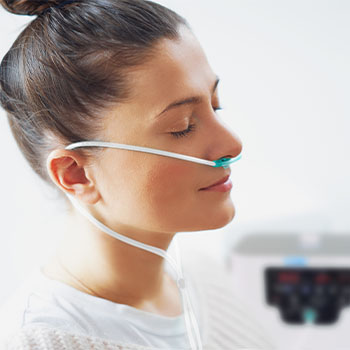
References: Detailed studies, hydrogen application
Presentation of the current state of medical knowledge on hydrogen therapy based on the available studies (selection, many more studies available).
- Inhalation of hydrogen gas alleviates airway inflammation in asthma and COPD patients QJM: An International Journal of Medicine, December 2020 National Key Research and Development Program of China Prospective study PMID: 32407476 PMCID: PMC7785302 DOI: 1093/qjmed/hcaa164 https://pubmed.ncbi.nlm.nih.gov/32407476/
Background: Hydrogen has been shown to have antioxidant and anti-inflammatory effects in various diseases. Objective: We aimed to investigate the acute effects of inhaled hydrogen on airway inflammation in patients with asthma and chronic obstructive pulmonary disease (COPD). A total of 10 asthma patients and 10 COPD patients inhaled a 2.4% hydrogen-containing mixed vapor gas (XEN) for 45 minutes once. The concentrations of granulocyte-macrophage colony-stimulating factor, interferon-γ, interleukin-1β (IL-1β), IL-2, IL-4, IL-6, and others in peripheral blood and exhaled breath condensate (EBC) before and after XEN inhalation were measured.
Results: A single 45-minute inhalation of “XEN” reduced the level of monocyte chemoattractant protein 1 in both the COPD group (…) and the asthma group (…), while IL-8 levels decreased only in the asthma group. The level of soluble EBC cluster differentiation ligand 40 increased in the COPD group (…) after inhalation, while IL-4 and IL-6 levels in the EBC were significantly lower after inhalation in the COPD and asthma groups (…), respectively.
Conclusion: A single 45-minute hydrogen inhalation alleviated airway inflammation in patients with asthma and COPD.
- Molecular hydrogen improves physical and respiratory function in patients with acute COVID-19 disease: A new perspective in rehabilitation Palacký University Olomouc, Czech Republic February 2022; doi: 10.3390/ijerph19041992 https://pmc.ncbi.nlm.nih.gov/articles/PMC8872486/
Molecular hydrogen (H₂) may be a novel therapeutic gas for patients with acute post-coronavirus disease 2019 (COVID-19), as it possesses antioxidant, anti-inflammatory, anti-apoptotic, and anti-fatigue properties. The aim of this study was to determine the effect of a 14-day H₂ inhalation therapy on respiration and physical fitness in patients recovering from acute COVID-19. In this randomized, single-blind, placebo-controlled study, 26 men (44 ± 17 years) and 24 women (38 ± 12 years) participated in a 6-minute walk test (6MWT) and pulmonary function tests, specifically forced vital capacity (FVC) and forced expiratory volume in 1 second (FEV1). Symptomatic participants were recruited 21–33 days after a positive PCR test. The experiment involved H₂ or placebo inhalation, 2 × 60 min/day for 14 days. Results showed that H₂ therapy significantly increased the 6MWT distance by 64 ± 39 m, FVC by 0.19 ± 0.24 L, and FEV1 by 0.11 ± 0.28 L compared with placebo (all p ≤ 0.025). In summary, H₂ inhalation had beneficial effects on health, improving physical and respiratory functions in patients recovering from acute COVID-19. Therefore, H₂ inhalation could represent a safe and effective approach to accelerate early functional recovery in post-COVID-19 patients.
- Cancer patients undergoing radiotherapy: Effects of drinking hydrogen-rich water on the quality of life of liver tumor patients during radiotherapy Medical Gas Research, University of Pittsburgh, Pennsylvania, USA
- June 2011 https://link.springer.com/article/10.1186/2045-9912-1-11
Cancer patients receiving radiotherapy often suffer from fatigue and reduced quality of life. Many side effects of radiotherapy are thought to be associated with increased oxidative stress and inflammation caused by reactive oxygen species produced during radiation exposure. Hydrogen can be administered as a therapeutic medical gas, has antioxidant properties, and reduces tissue inflammation. Conclusion: Daily consumption of hydrogen-rich water is a potentially novel therapeutic strategy to improve quality of life after radiation exposure. Drinking hydrogen-rich water reduces biological responses to radiation-induced oxidative stress without compromising antitumor efficacy.
- Hydrogen gas inhalation treatment for acute cerebral infarction November 2017, pp. 2587–2594 Department of Neurosurgery, Nishijima Hospital, Numazu City, Shizuoka-ken, Japan https://www.sciencedirect.com/science/article/pii/S105230571730294X
In this randomized, controlled clinical study, we investigated the safety and efficacy of H₂ therapy in patients with acute cerebral infarction with mild to moderate National Institute of Health Stroke Scale (NIHSS) scores (NIHSS = 2–6). We included 50 patients (25 in the H₂ group and 25 in the control group) within a therapeutic window of 6–24 hours. The H₂ group inhaled 3% H₂ gas twice daily for one hour, while the control group received conventional intravenous medications during the first seven days. Evaluations included daily vital signs, NIHSS scores, physiotherapy indices, weekly blood chemistry, and brain MRI over the two-week study period. The H₂ group showed no significant side effects but improved oxygen saturation. Significant effects were observed in relative MRI signal intensity (indicating infarct severity), NIHSS stroke severity scores, and physiotherapy outcomes assessed using the Barthel Index. H₂ therapy was safe and effective in patients with acute cerebral infarction. These findings suggest potential for broad and general application of H₂ gas therapy.
- Therapeutic hydrogen gas inhalation in Alzheimer’s patients and subsequent long-term follow-up as a disease-modifying treatment Hirohisa Ono, Yoji Nishijima and Shigeo Ohta, Nishijima Hospital, Ohoka, Numazu City, Japan https://www.mdpi.com/1424-8247/16/3/434 Open pilot study, March 6, 2023 https://doi.org/10.3390/ph16030434
Alzheimer’s disease (AD) is a progressive and fatal neurodegenerative disorder. Hydrogen gas (H₂) is a therapeutic medical gas with multiple functions such as antioxidation, anti-inflammation, anti-apoptosis, and stimulation of energy metabolism. To develop a disease-modifying treatment for AD through multifactorial mechanisms, an open-label pilot study on H₂ therapy was conducted. Methods: Eight AD patients inhaled 3% H₂ gas twice daily for one hour over six months and were followed up for one year without further H₂ inhalation. Clinical assessment was based on the Alzheimer’s Disease Assessment Scale–cognitive subscale (ADAS-cog). To objectively assess neuronal integrity, diffusion tensor imaging (DTI) with advanced MRI was performed on hippocampal fiber tracts. Results: The mean individual ADAS-cog change showed a significant improvement (−4.1) after 6 months of H₂ treatment compared to untreated patients (+2.6). DTI analysis revealed a significant improvement in hippocampal neuronal integrity after H₂ treatment. The improvement persisted at the 6-month (significant) and 1-year (non-significant) follow-up. Conclusion: This study suggests that H₂ therapy not only relieves temporary symptoms but may also have disease-modifying effects despite its limitations.
- New role of molecular hydrogen: The end of eye diseases? Pharmaceuticals 2023, Henan Eye Institute, Henan Eye Hospital, People’s Hospital of Zhengzhou University, Zhengzhou, China https://doi.org/10.3390/ph16111567
Submitted: August 31, 2023 / Revised: October 3, 2023 / Accepted: October 6, 2023 / Published: November 7, 2023 https://www.mdpi.com/1424-8247/16/11/1567
Molecular hydrogen (H₂) is a colorless, odorless, and tasteless gas that is non-toxic even at high concentrations. H₂ can alleviate oxidative damage, reduce inflammatory responses, and inhibit apoptotic cascades, thereby exerting protective and reparative effects on cells. H₂ can enter the body as H₂ gas, hydrogen-rich water (HRW), hydrogen-rich saline (HRS), or endogenously via intestinal bacteria. Increasing evidence suggests that H₂ protects against numerous eye diseases, including cataracts, dry eye, diabetic retinopathy (DR), and others. It has been tested clinically for the treatment of dry eye and corneal endothelial injuries. This medical gas has brought new hope to blind patients. …
Conclusion and Outlook: As a potent antioxidant, the benefits of H₂ mainly rely on its antioxidative, anti-inflammatory, and anti-apoptotic properties. It shows remarkable potential in treating neurological diseases (stroke, Parkinson’s), cardiovascular diseases (I/R injury, hypertension), and liver diseases (fatty liver, fibrosis). Between 2016 and 2023, H₂ therapy gained significant recognition as a treatment approach for eye diseases. Researchers have successfully applied H₂ in animal models for various ocular conditions such as corneal endothelial injury, uveitis, and AMD. Furthermore, H₂ has officially entered the field of clinical ophthalmic research, including cataract and dry eye treatments — marking a significant advancement in realizing H₂’s potential in ophthalmology. … The endothelial cell density reduction rate was significantly lower in the H₂ group at 1 day, 1 week, and 3 weeks post-surgery compared with controls. Additionally, slit-lamp photography and specular microscopy showed that corneal edema in H₂-treated eyes appeared milder postoperatively. Currently, H₂ beverages for clinical use are also available. … Recent research has demonstrated that H₂ can induce tumor cell damage and apoptosis [165]. The therapeutic use of H₂ gas in ocular tumors may represent a promising research field. As H₂ is an almost flawless medical agent, its therapeutic efficacy for eye diseases is undisputed.
- Hydrogen-rich water for improvement of mood, anxiety, and autonomic nerve function in daily life Osaka City University Center for Health Science Innovation, Osaka, Japan.
Medical Gas Research, December 2017; DOI: 10.4103/2045-9912.222448 https://journals.lww.com/mgar/fulltext/2017/07040/hydrogen_rich_water_for_improvements_of_mood,.4.aspx
Health and active living are universal goals. To improve quality of life (QOL), maintain health, and prevent diseases, evaluating the effects of potentially QOL-enhancing factors is essential. Chronic oxidative stress and inflammation lead to CNS dysfunction and reduced QOL. Even in healthy individuals, aging, occupational stress, and prolonged cognitive load increase oxidative stress, suggesting that preventing its accumulation supports QOL and mitigates aging effects. Hydrogen has antioxidant properties and may prevent inflammation, thus improving QOL.
In this double-blind, placebo-controlled, two-period crossover study, 26 volunteers (13 women, 13 men; mean age 34.4 ± 9.9 years) were randomized to receive either HRW (600 ml/day) or placebo water (PLW, 600 ml/day) for 4 weeks.
The post/pre-treatment ratios for K6 score and resting sympathetic nerve activity were significantly lower after HRW than after PLW intake. These findings suggest that HRW can enhance QOL by improving CNS-related functions such as mood, anxiety, and autonomic regulation.
- Hydrogen alleviates inflammation by inducing early M2 macrophage polarization during skin wound healing Faculty of Environment and Life, Beijing University of Technology, Beijing, China Therapeutic Potential of Molecular Hydrogen June 2023 https://doi.org/10.3390/ph16060885
The heterogeneous and highly plastic macrophage populations are key mediators of cellular responses during all stages of wound healing, particularly in the inflammatory phase. Molecular hydrogen (H₂), with strong antioxidant and anti-inflammatory properties, has been shown to promote M2 polarization in injury and disease models. However, further in vivo time-course studies are needed. In this study, time-course experiments were conducted on a mouse dorsal full-thickness skin defect model to examine the effects of H₂ inhalation. Our results showed that H₂ promotes very early M1-to-M2 polarization (days 2–3 after injury, 2–3 days earlier than in conventional healing) without impairing M1 functions. Transcriptome, blood cell count, and cytokine analyses further suggested that peripheral blood monocytes are a source of H₂-induced M2 macrophages and that H₂’s effects on macrophage polarization are not solely due to antioxidant activity. Therefore, H₂ may reduce inflammation in wound care by accelerating early macrophage polarization in clinical contexts.
- Therapeutic potential of molecular hydrogen in metabolic diseases: From laboratory to bedside Faculty of Environment and Life, Beijing University of Technology, Beijing, China 2023, https://doi.org/10.3390/ph16040541 https://www.mdpi.com/1424-8247/16/4/541
Oxidative stress and chronic inflammation are linked to the pathophysiology of metabolic disorders including diabetes mellitus (DM), metabolic syndrome (MS), fatty liver (FL), atherosclerosis (AS), and obesity. Molecular hydrogen (H₂) was long considered physiologically inert. Over the past two decades, preclinical and clinical studies have provided increasing evidence that H₂ can act as an antioxidant and exert therapeutic and preventive effects on various disorders, including metabolic diseases. The mechanisms underlying H₂’s effects remain under investigation. This review aimed to (1) summarize current research on H₂’s potential effects on metabolic diseases and (2) discuss possible mechanisms, including canonical antioxidant, anti-inflammatory, and anti-apoptotic effects, suppression of ER stress, activation of autophagy, improvement of mitochondrial function, regulation of gut microbiota, and other potential pathways. Potential molecular targets of H₂ are also discussed. So far, both preclinical and clinical studies provide evidence that H₂ interventions may positively affect metabolic disorders without reported side effects. … In summary, current findings suggest that H₂ may play a role in the treatment of metabolic diseases. With further clinical and pharmacological research, H₂ could become a valuable therapeutic option in future medical practice.
- Hydrogen inhalation reduces pulmonary inflammation and blood pressure Animal study, Biomedicines, November 2023; DOI: 3390/biomedicines11123141 Department of Pharmacology, Faculty of Medicine, Lomonosov Moscow State University, Moscow, Russia https://pmc.ncbi.nlm.nih.gov/articles/PMC10740706/
Hydrogen has selective antioxidant properties against hydroxyl radicals and exerts antioxidant and anti-inflammatory effects. The monocrotaline-induced pulmonary hypertension model is suitable for testing substances with antioxidant activity, as monocrotaline induces oxidative stress. On day one, male Wistar rats received a subcutaneous injection of an aqueous-alcoholic monocrotaline solution or control vehicle. One group of monocrotaline-treated rats was placed in a chamber ventilated with air containing 4% molecular hydrogen, while the others were kept in air-only chambers. After 21 days, hemodynamic parameters were measured under urethane anesthesia. Results showed that hydrogen inhalation did not affect the primary markers of monocrotaline-induced pulmonary hypertension but lowered systemic blood pressure via its systolic component, decreased TGF-β expression, and reduced the number of tryptase-positive mast cells.
Powerful hydrogen generators for everyday use overview
Mobile hydrogen boosters with high performance values for better personal performance
The following powerful hydrogen boosters, hydrogen filters for hydrogen-rich drinking water and hydrogen inhalers for inhaling hydrogen are very suitable for everyday use, they are certified and reliably supply our body cells with this valuable elixir of life.

